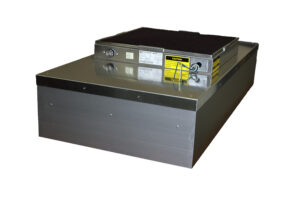 Cleanrooms play a critical role in various industries, including pharmaceutical, semiconductor, and medical device manufacturing. They provide a controlled environment with minimal contamination, ensuring the quality and safety of products. One of the key components that contribute to maintaining a clean and particle-free environment in cleanrooms is the use of High-Efficiency Particulate Air (HEPA) filters. In this blog post, we’ll discuss the importance of HEPA filters in cleanroom manufacturing and why they are essential for optimal cleanroom performance.
Cleanrooms play a critical role in various industries, including pharmaceutical, semiconductor, and medical device manufacturing. They provide a controlled environment with minimal contamination, ensuring the quality and safety of products. One of the key components that contribute to maintaining a clean and particle-free environment in cleanrooms is the use of High-Efficiency Particulate Air (HEPA) filters. In this blog post, we’ll discuss the importance of HEPA filters in cleanroom manufacturing and why they are essential for optimal cleanroom performance.
What are HEPA Cleanroom Filters?
HEPA filters are designed to capture airborne particles with a high level of efficiency. They can remove at least 99.97% of particles with a size of 0.3 microns or larger, making them one of the most effective air filtration systems available. The filter consists of a dense network of randomly arranged fibers, which effectively traps particles through a combination of mechanisms such as interception, impaction, and diffusion.
How HEPA Cleanroom Filters Improve Cleanroom Performance
Cleanrooms must adhere to strict cleanliness standards, as even the slightest contamination can compromise product quality and safety. HEPA cleanroom filters play a vital role in maintaining these high standards by providing the following benefits:
- Particle Removal: The primary function of HEPA filters is to remove airborne particles from the cleanroom environment. This ensures that contaminants, such as dust, bacteria, and other microscopic particles, do not interfere with the manufacturing processes or affect the quality of the products being produced.
- Consistent Airflow: HEPA cleanroom filters help maintain a consistent and controlled airflow within cleanrooms. This uniform air distribution is essential for preventing the accumulation of particles on surfaces and promoting the effective removal of contaminants through the air filtration system.
- Protection Against External Contamination: Cleanrooms are designed to minimize the infiltration of contaminants from the outside environment. HEPA filters serve as a barrier, preventing particles from entering the cleanroom and maintaining the integrity of the controlled environment.
- Compliance with Industry Standards: Many industries, such as pharmaceuticals and electronics, require cleanrooms to meet specific cleanliness standards, such as ISO or Federal Standard 209E classifications. HEPA cleanroom filters play a crucial role in meeting these requirements, as their high-efficiency particle removal capabilities contribute to maintaining the necessary cleanliness levels.
Proper Maintenance of HEPA Filters
To ensure the continued effectiveness of HEPA filters in cleanroom manufacturing, it is essential to perform regular maintenance and replace filters when necessary. Here are some tips to help maintain the efficiency of your HEPA filtration system:
- Regular Inspections: Inspect the filters regularly for signs of wear, damage, or clogging. This will help identify any issues that may compromise the performance of the filtration system.
- Monitoring Differential Pressure: Monitoring the differential pressure across the HEPA filter is an effective way to assess its performance. A significant increase in differential pressure may indicate that the filter is becoming clogged and requires replacement.
- Scheduled Filter Replacement: Establish a scheduled filter replacement program based on the manufacturer’s recommendations and the specific conditions of your cleanroom. This will help ensure that filters are replaced before their efficiency is compromised, maintaining optimal cleanroom performance.
- Proper Installation: Ensure that HEPA cleanroom filters are installed correctly, with a tight seal to prevent air bypass. This will maximize the filter’s effectiveness in capturing particles and maintaining the desired cleanliness level.
HEPA filters play an indispensable role in cleanroom manufacturing by maintaining a contamination-free environment crucial to product quality and safety. Their high-efficiency particle removal capabilities make them an essential component of cleanroom design, ensuring compliance with industry standards and promoting consistent, controlled airflow. Proper maintenance and timely replacement of HEPA cleanroom filters are vital to maintaining their effectiveness as well.
Need HEPA filters for your cleanroom? Consult our HEPA filter comparison chart here.
